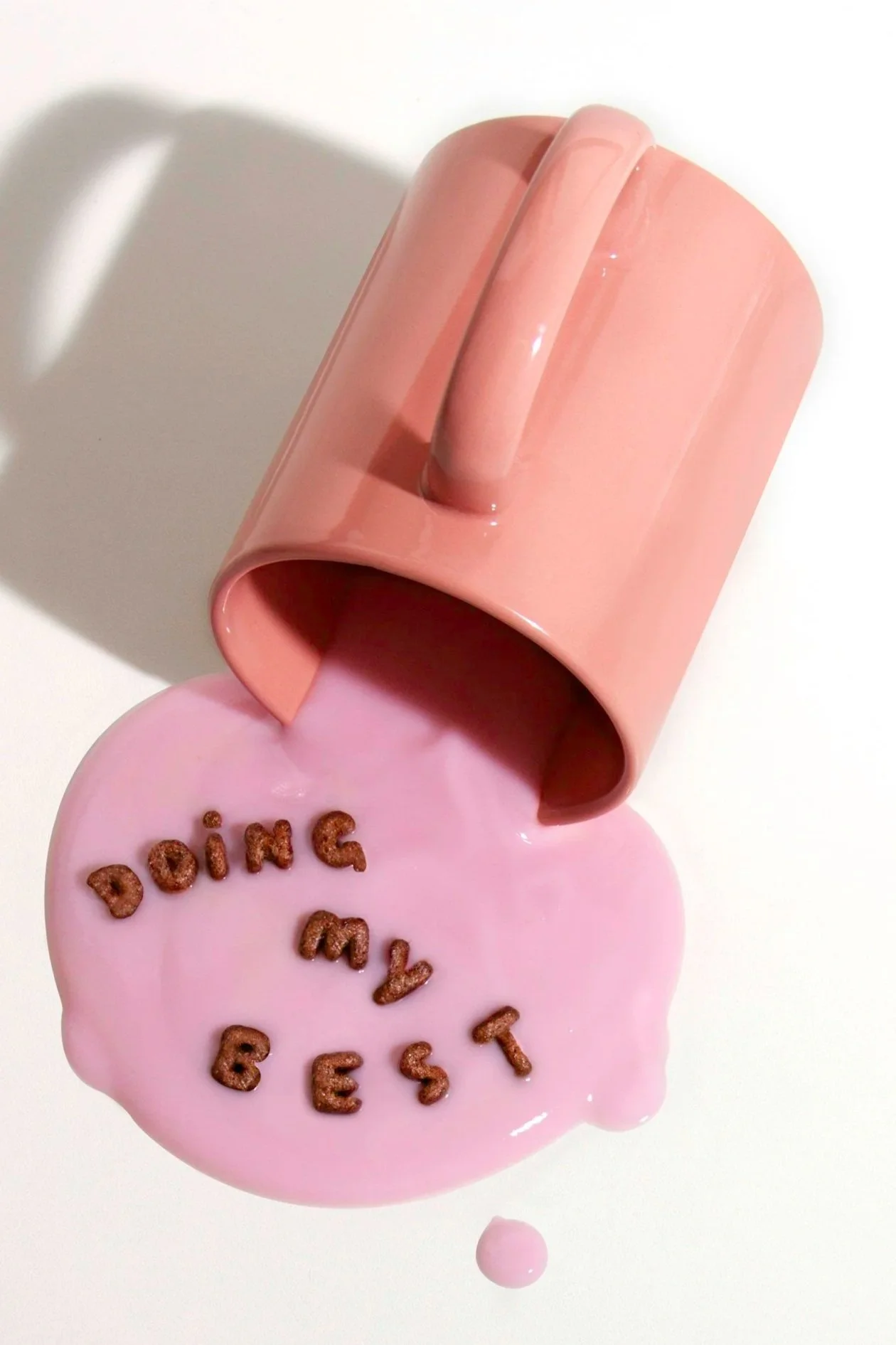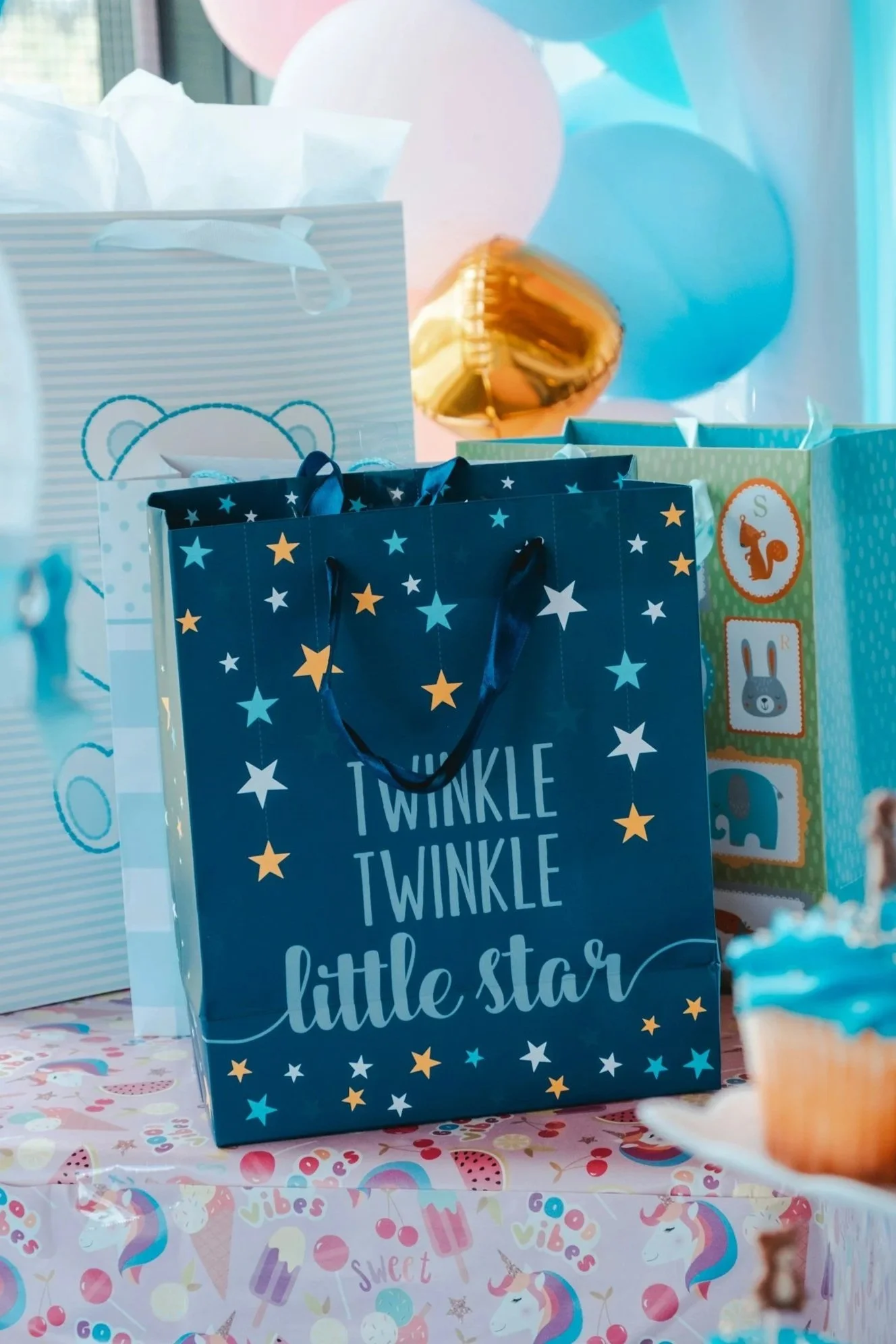Matrescence Part 2: Why the Identity Shift to Mom Can be Hard when Pregnant
By Peggy Loo, PhD
In Part 1, I introduced the word matrescence and a general encouragement for expecting women to explore what may be changing about their identities. Pregnancy is often baby or body-focused in ways that unintentionally eclipse an important thing that may also be baking in the oven for the first time: your identity as a mom. Exploring this new part of yourself can include talking with others about their experiences of mother-becoming or reflecting on what being a mom means to you.
There are many benefits to doing so, such as accepting that it’s a process, normalizing typical growing pains that come with a new sense of who you are, proactively supporting your mental health postpartum, and creating honest connections with others. If you’re interested in more about that, check out Part 1.
But what happens if feeling out a maternal identity during pregnancy is unexpectedly challenging or even a stretch for you? (By the way, it’s a stretch for all first time parents in some way.) There are many valid reasons why - even if you’ve always wanted to have a baby and be a mom. It’s different when it’s actually happening and you’re moving towards your due date.
Noticing anxiety, resistance, disorientation, or mixed feelings about a mom sense of self may come as a surprise to you, especially if you’ve tried for a while to get pregnant - or it may be something you guessed could pop up. This can contradict the personal expectations you’ve held, or simply go against patriarchal assumptions about what becoming a mom should look or feel like.
Why seeing yourself as a mom can feel challenging during pregnancy
Here are a few reasons your matrescence may feel unexpectedly hard that I’ve seen as a psychologist specializing in perinatal mental health.
Obstacle 1: The physicality of pregnancy and life are a lot.
Growing a tiny human is an extraordinary demand physically - and sometimes there’s room for little else. Even for birthing people with “manageable” symptoms, your body is doing incredible things in an unbelievably short time frame that require adjustments to what’s often been routine, such as eating, moving around, and sleeping.
For expecting mothers who experience extreme nausea or unrelenting fatigue, getting to the end of your day is a huge win. For women with higher risk pregnancies - monitoring your health and your baby’s with your medical team becomes its own job. And it may be self-protective to not assume anything about the future, including imagining yourself as the mom of your baby.
Also, life doesn’t pause or get any easier simply because you’re pregnant! In fact, it’s likely to feel even busier as you add appointments and practical preparation on top of life, work, family and relationship responsibilities. This doesn’t even include any of life’s curveballs that can demand your energy and time. How then, does anyone have extra time or space for personal reflection?
Using CBT for matrescence
As a therapist who incorporates CBT (cognitive behavioral therapy) into sessions when useful, I’m a big fan of reframing your perspective when you can, especially when it creates flexibility and self compassion. Reflecting on what being a mother means to you doesn’t need to look like hours out of your day journaling or having lengthy conversations. It can be in the small, seemingly ordinary moments you’re already having, viewed through a different lens.
For example, figuring out a reminder system for taking your prenatal vitamins could be yet another annoying daily chore - or it can be a new and nourishing maternal act of care for yourself and your baby. It already parallels what we know about perinatal mental health - that caring for yourself means you’re caring for your baby.
Even if the “only” thing you’re doing is surviving unpredictable symptoms or getting to the next appointment - persevering in the face of unknowns is an incredible strength, especially if you’re feeling nervous about being a “good mom”. Think of it this way - you’re going to facing a lot of first-times and unknowns as a mom- you’re getting in great practice!
This isn’t about “thinking only positive thoughts” or invalidating what’s hard - but an invitation to see what’s possible in every day moments when life is already a lot. So much of what’s happening and what you’re already doing counts - it can be a matter of how you choose to see it (and yourself) in the process.
Obstacle 2: You think if you wanted to become a mom, you should only feel positively about it.
Maybe you were focusing so much on getting pregnant that now that you are, you’re kind of panicking about what’s next and these feelings are throwing you off. Just like any other major identity in your life, maternal identity is a dynamic process, shaped by personal life experiences and larger social systems, and at times wonderful and difficult. While you’re pregnant, you’re literally straddling two worlds - your life as you know it, and this new one you're starting to imagine, but you know won’t be identical. That’s going to come with a lot of feelings, and maybe not ones you feel like you’re supposed to have.
This completely challenges the cultural myth that becoming a parent should feel all positive, blissful, and fulfilling - or that all birthing people immediately feel supercharged with joy and love when meeting their babies at birth. While this may be your experience, it’s completely normal and okay if it’s not!
All relationships take time to grow, including this one. No life transition is seamless. And in my professional experience, expecting that to happen needlessly heightens guilt, self doubt, feelings of defectiveness, perfectionism, masking, and isolation. Unfortunately, it absolutely sets new moms up for a more challenging postpartum year (and identity) in every way.
After having her first child, writer and mother Lucy Jones said, “Everyone knows adolescents are uncomfortable and awkward because they are going through extreme mental and bodily changes, but, when they have a baby, women are expected to transition with ease - to breeze into a completely new self, a new role, at one of the most perilous and sensitive times in the life course” (Jones, 2023, p. 18).
No major life or identity change is only positive
Think about some of the identities that feel strong and defined to you now but weren’t at first - maybe a professional identity, or being a friend, partner, student, or leader in your community. Maybe that identity felt like a great addition to your life, or it may have created a lot of inner conflict about who you are. You probably experienced some good days and hard days as you figured out what it meant for you to step into a new way of being in authentic and healthy ways.
It’s no different with motherhood. Discovering what it means for you happens through learning, flexibility, mistakes, and plenty of feedback; it’s supposed to come with ups and downs and important to normalize that. Having lows doesn’t mean it’s not for you - it’s just part of the process. It makes sense to grieve, worry about, dislike, and even resent some of the changes happening - even if you wanted to be a mom! It’s not a sign of how much you’ll love your baby or what kind of parent you’ll be. It means you’re letting go of a familiar way of knowing yourself for a version you can’t perfectly predict or control - and that should come with a wide range of reactions.
Each of your feelings tells you something useful about you or your experience. Feeling a little resentful about changes or sacrifices you’re already making while expecting clues you into the importance learning how to value your needs and someone else’s. Knowing it’s supposed to be the full range of emotions can be a relief and can encourage genuine curiosity and openness to all the facets of your matrescence.
Obstacle 3: The myth of maternal instinct and pressure to be a supermom is overwhelming.
I can see the appeal that there’s an innate, biological, hard-wired compass unique to women and birthing people that bestows maternal instincts. And it gets emotionally (and hormonally) activated. Like some red button under glass waiting to be smashed with that positive pregnancy test or childbirth. It feels like a dramatic rite of passage and then you get to step forward into your new mom self with confidence and clarity.
The reality is way messier. While there are hormone and brain-based processes in a birthing person’s body during pregnancy that encourage caregiving and protective behaviors (such as changes to attention, threat detection, and bonding) it doesn’t immediately make someone a supermom or feeling like a mom easy, “natural”, or intuitive. When a baby is born, it’s been said that there’s a newborn infant - and a newborn mother. Being okay with that can be hard given real internalized social pressure - and if you’re looking around assuming other people already have the secret sauce.
Cultivating self-acceptance for your beginner mom self and being okay with one step at a time
Becoming and seeing yourself as a mom takes time, practice, and personalization to your unique experience. And by the way - wonderful research now deeply challenges the idea that only birthing bodies are uniquely “hard-wired” with parental instincts (meaning that non-birthing parents are automatically excluded). We already knew that parts of the brain physically change in response to the process of regular caregiving, interacting with a newborn, and learning the cues of a new relationship. We see this consistently across the board with biological mothers and their babies if we scan their brains.
However, research also now reveals that the brain of any caregiver undergoes the same physiological changes as those of birth mothers when that person is repeatedly engaged in caregiving tasks, regardless of sex or biological relationship to the baby (Conaboy, 2022). This means everyone’s brain (literally) transforms on a profound physical and internal level when they start parenting, regardless of their starting point. You don’t have to have “maternal intuition” at the very beginning or get it all right - all you need to do is show up and keep trying. These aren’t empty words - it’s the science.
Remember, just because a healthy pregnancy progresses through predictable and sequential stages, doesn’t mean it feels that way emotionally or psychologically when it comes to your matrescence. This problematic assumption puts new mothers under extraordinary pressure to feel immediately knowledgeable or innate competence, and whatever is lacking becomes the main story they tell about themselves as moms. There is no other new identity, role, or relationship where the expectation is to know what you’re doing or have perfect instincts before you’ve had any practical experience - and yet this is often the expectation for women.
Internalizing this expectation can make you shy away from the matrescence side of what’s changing and lean more into the practical or physical. Or worse, new moms enter matrescence with a skewed view of themselves, assuming they’re not good enough or doing enough. Knowing that any and all starting points are truly okay cultivates self-acceptance. It encourages the mom identity transition to unfold in the present, one step at a time. It’s actually what happens for everyone, and how it’s supposed to be.
Obstacle 4: The past or trauma can affect your matrescence.
The effects of past experiences or trauma can complicate or add painful emotions that get activated during pregnancy. Whether that is generational trauma, having had a complicated or painful relationship with your own mother, or traumatic experiences on the way to becoming a mother (e.g., pregnancy post-infertility, miscarriage, or stillbirth; loss of a mother/maternal figure). These experiences are part of your story and body that you bring into mother-becoming.
Since trauma is such a huge topic, I can’t get into all the ways specific kinds of trauma can affect your matrescence. The most important things I’ll say is - if your past is affecting your present, you’re not alone in feeling this way and you don’t need to stuff things down, especially if you’re worried that talking about trauma will make things feel worse. Having past trauma doesn't mean that you’re inevitably going to be a “bad” mom. And as a therapist, I’d actually say that suppressing your feelings is always more negatively impactful than finding a way to talk about and understand them, and even let them go. Looking for a therapist who specializes in trauma during pregnancy can help you make sense of what’s coming up for you and very importantly - decide how you’d like to respond moving forward.
Trauma therapy during pregnancy
It may feel as though this isn’t a “good” time to focus on yourself and do trauma therapy (and ultimately you should always decide what is best for you). But addressing past experiences can not only bring self-understanding and healing, but free up the emotional and physical energy you were spending keeping trauma under wraps for your matrescence. So much of becoming and seeing yourself as a mother requires being present and emotionally available - so getting professional support to make that more possible will have a positive ripple effect for you and your baby.
If you’re having flashbacks, noticing intense emotional activation (or numbness), experiencing mood swings, or coping in ways that are negatively impacting your day to day - this is a clue to seek professional support. Or if you’re noticing significant sadness or anticipatory concerns about aspects of motherhood, whether that’s recalling memories you haven’t thought about in a long time or being physically vulnerable and examined during childbirth - getting therapy can help you come up with a plan that helps you feel empowered. Everyone’s past experiences shapes how they become mothers. The takeaway here is you have choice now, and choosing to staying connected to yourself and others with the right kind of support makes all the difference.
Obstacle 5: Adding the mom identity can be complicated.
In Part 1, I mentioned that one of the typical and expected challenges of matrescence is an identity “crisis”. Here, I mean the understandable struggles you have when having to prioritize a new identity among others. So what about those other identities, specifically the multicultural ones? We know that the combination of different identities, especially the ones that are already marginalized - often means more challenges. There’s a reality that if being yourself in the world is already hard and unfair - adding “mom” to your identities won’t necessarily change that. Here are a few examples of what I mean.
If your identities were already socially disadvantaged ones (like being BIPOC, LGBTQ+, genderqueer) - you probably already noticed early on in your pregnancy the ways that your experience doesn’t fit the dominant image of the “expecting mother” (i.e., White, straight, cisgender woman). Not conforming means your matrescence has likely already been affected by the medical care you’ve received, social media, or simply the biases underneath the questions people ask when you share you’re pregnant. You may feel a pressure to mask or silence some of your identities, go cookie cutter with your matrescence, or feel resigned that you won’t get the level of understanding you deserve or need.
For some people, there are mixed feelings about privilege or invisibility that’s fluid and depends on context. This could be experiencing more social value in communities since you’ve proven your “ability” to get pregnant, and sometimes depending on the culture, even moreso if you’re having a boy. Or if you’re not the birthing parent, it could be experiencing a lot less support or attention to your matrescence experience or needs. For some women, being labeled a “first-time mother” is a complicated term if they’ve had multiple prior perinatal losses where they already identified as moms. This can be an incredibly invalidating across the board - especially if the communities you’re a part of have up to this point played a large role in supporting your sense of self and belonging.
Everyone has a mix of visible and invisible identities - whether that’s age, class, neurodivergence, disability, or religious, to name a few - and we all navigate when, how, and with whom we might share the invisible or less obvious ones. This can be a way that we exercise agency and create emotionally safe spaces and relationships for ourselves. A unique aspect of pregnancy is at one point, it goes from an invisible to a visible identity. For many birthing people, having a baby bump that’s hard to hide is an experience where their personal lives become public whether or not they want that to be the case. If you’ve experienced being singled out, stereotyped, or oppressed because of a visible identity - this can be triggering. Or it may mean having to field new experiences of bias or unwanted attention on top of the existing challenges of pregnancy and matrescence.
Remember, becoming a mom should feel honest to yourself. Your matrescence may be quite traditional, or it may not look like any of the mothers around you. Both are okay, and there’s no right answer of what it’s supposed to look like. Your maternal identity gets to be completely yours, however you want to express it. It’s important to acknowledge that things like patriarchy and oppression doesn’t make this easy for many. But a place to start is knowing for yourself that there are many wonderful ways of being and looking like a mom and supporting as many expressions of matrescence as you can for others.
Therapy for matrescence during pregnancy
Matrescence is an adventure, full of discovery, different challenges, and new perspective. In Part 2, I shared about a few reasons why expecting folks may find their matrescence unexpectedly hard. It’s important to validate the range of experiences and emotions that can come with - not just the ones that are socially acceptable or popular to share.
If you’re experiencing some of the above or struggling in a different way, it can be so helpful to reach out for specialized support. Your OB, family members, friends or colleagues may understand what you’re going through, or maybe only partially. Consider working with a therapist that specializes in perinatal or maternal mental health to support your matrescence during pregnancy.
Our therapists at Manhattan Therapy Collective offer a number of therapy approaches that can specifically help, such as Interpersonal Therapy (IPT), multicultural therapy, and trauma therapy. If you’re interested in learning more, reach out to get started.
About the Author: Peggy Loo, PhD is a counseling psychologist at Manhattan Therapy Collective and has a certification in perinatal mental health. Dr Loo has advanced training in CBT, EMDR, and multicultural therapy, which she uses to help people understand the cognitive, somatic, and diverse parts of themselves. She enjoys supporting women during their matrescence and is passionate about bringing greater attention to perinatal mental health as an act of social justice.
References:
Conaboy, C. (2022). Mother brain: How neuroscience is rewriting the story of parenthood. Henry Holt and Company.
Jones, L. (2024). Matrescence: On pregnancy, childbirth, and motherhood. Pantheon.






